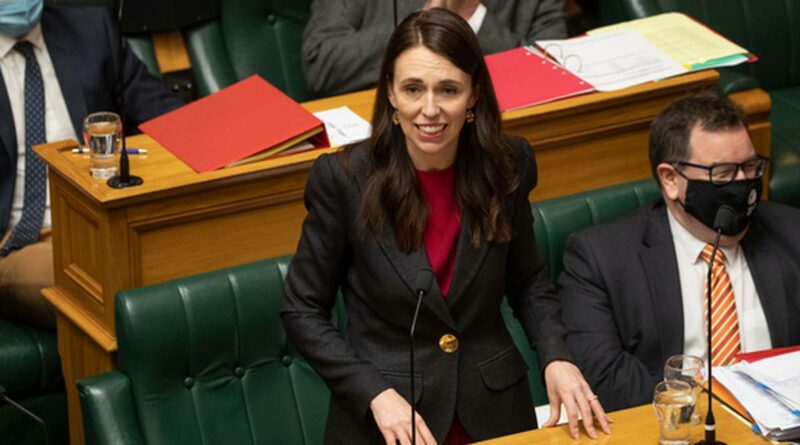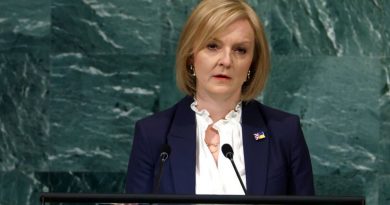PM Jacinda Ardern and National’s Christopher Luxon cross swords on tax, inflation, cost of living
Prime Minister Jacinda Ardern and National Party leader Christopher Luxon have had a robust exchange in Parliament as Luxon tried to get Ardern to admit there was a cost-of-living “crisis” and Ardern claimed Luxon’s tax cuts remedy would worsen inflation and benefit the rich more than the poor.
Luxon made the cost-of-living and taxes debate the battleground after setting out policy to lift income thresholds by the same level as inflation – effectively a tax cut – in his state-of-the-nation speech on Sunday.
On Tuesday, Luxon asked Ardern in Parliament why she would not admit there was a crisis when rent was up by $140 a week and food prices were up more than 13 per cent under her Government.
“Is the reason she won’t admit New Zealand has a cost-of-living crisis simply because that would mean admitting she has a responsibility to do something about it, but she’d rather increase spending than give more than three million people some much-needed, inflation-adjusted tax relief at the Budget?”
Ardern replied that she acknowledged that people were facing price increases, putting it down to supply issues and the cost of crude oil.
However, she said Labour’s targeted support was giving those on under $40,000 more than $20 a week, whereas National’s plan of adjusting tax thresholds would give them just $2.15.
Luxon used his state-of-the-nation speech on Sunday to announce policy to lift income tax thresholds by the same amount as inflation in a bid to ease the strain on workers’ pockets.
Ardern also noted National had criticised the scale of the minimum-wage increases in recent years – and referred to a Facebook post of Luxon’s from April last year, when he posted about a café near Parliament having to put up its prices to pay for the increase in the minimum wage.
“When it comes to the increase in the cost of food, I have seen one other report: the Leader of the Opposition complaining about a potential increase to the cost of his coffee as a result of the increase in the minimum wage. That is where that member’s priorities lie.”
Act leader David Seymour later returned the social media serve, by quoting from a 2013 tweet by Ardern, in which she wrote “unemployment, housing, cost of living add up to people losing faith in government”.
Ardern also claimed that National’s tax cuts would only serve to increase inflation – which Luxon countered by questioning whether Labour’s plan for $6 billion of extra spending would be more inflationary than tax relief of $1.7 billion.
Finance Minister Grant Robertson had also weighed in, sending out a press release ahead of Question Time which said there were questions hanging over National’s estimates of the $1.7 billion cost of its proposals to lift tax thresholds, and the cost of its plan to other taxes Labour had introduced. Those include the regional fuel tax, and dropping the bright-line test for property from 10 years back to two years. Robertson said the cost would be at least $3 billion.
“It’s becoming clear National’s announcement on Sunday was a rush-job and their numbers don’t add up,” Grant Robertson said.
Luxon was asking his questions virtually, after testing positive for Covid-19 yesterday. He is one of a number of MPs who has now tested positive for Covid-19, or isolating because of a household member.
National’s deputy leader Nicola Willis said about 11 National MPs were now affected. They include Luxon, Simon Bridges, Mark Mitchell, and new MPs Joseph Mooney and Penny Simmons. Labour also has a handful.
Willis also defended Luxon over footage of him hugging and shaking hands with his mask slipping on Sunday at his state-of-the-nation speech – the day before he tested positive in rapid antigen tests.
Luxon was doing the tests daily and has said he had no symptoms. Willis said Luxon tested negative before the event and wore good-quality masks.
“He was wearing a mask, we intentionally kept that event small and people who were sitting in the audience were socially distanced, all those rules were followed.
“I think like many New Zealanders who had a clear negative test he didn’t believe he was a risk and he conducted himself completely within the rules.”
Source: Read Full Article


